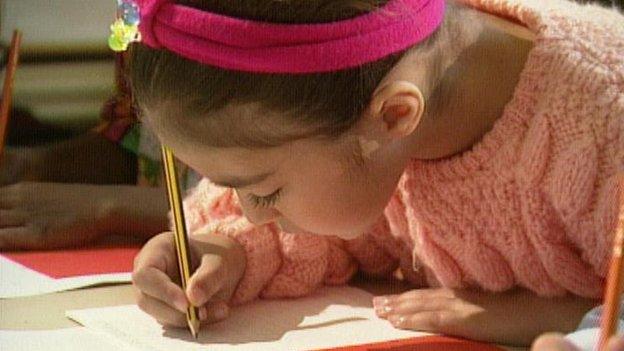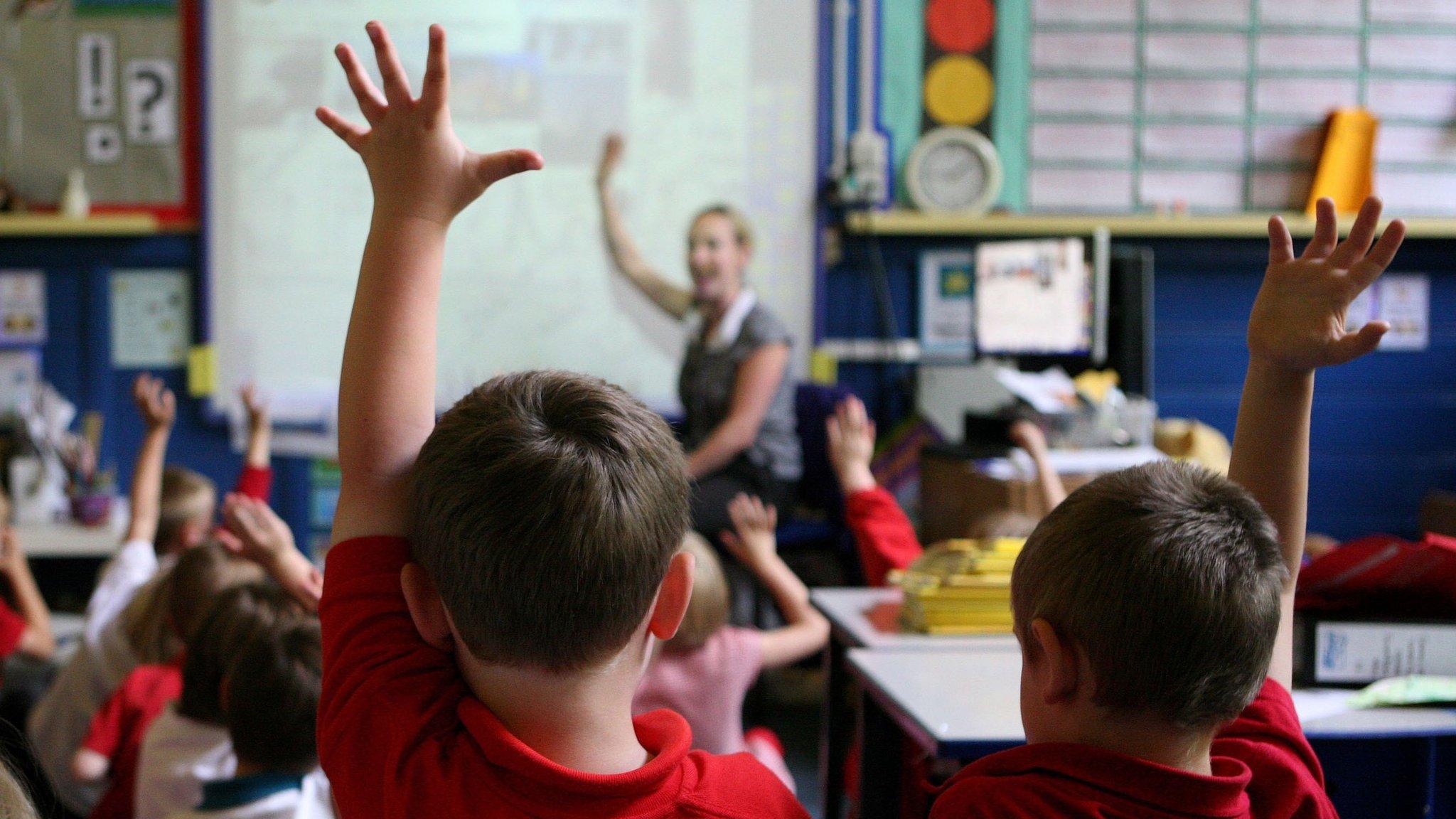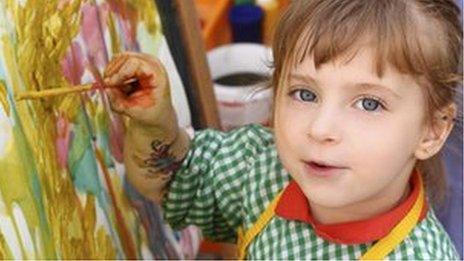Boys of five lag behind girls in literacy and numeracy
- Published

Ministers say too few children are ready to start school at the age of five
Five-year-old boys lag behind girls of the same age in reading, writing and maths, official statistics suggest.
Overall, 60% of five-year-olds in England were considered to be achieving a good level of development - eight percentage points up on last year.
The figures are based on teachers' assessment of children's progress at the end of the Early Years Foundation Stage, external last year.
Ministers said too few young children were ready to start school.
Education Minister Sam Gyimah called on nurseries and childminders to do more to improve children's progress.
More support
"The statistics published today clearly show that some progress is being made but more must be done to ensure children, especially those from disadvantaged backgrounds, are put on the right path," he said.
Ministers say the gap between those from the most disadvantaged areas and the rest is unchanged on last year's figures, at 12%.
Only 53% of children in the poorest neighbourhoods achieved a good level of development compared with 65% in better-off areas.
The government says it has introduced the Early Years Pupil Premium to give nurseries and childminders additional funding for specialist high quality support for the most disadvantaged children.
"It's now up to those who support our children to ensure they get the start in life they deserve. Something parents and I both want to see," said Mr Gyimah.
The statistics, which record teacher assessments of pupils' academic progress as well as physical development and social skills, showed a marked gender gap.
Teachers assessed 69% of five-year-old girls as achieving a good level of development in 2013 to 2014, compared with 52% of boys.
Just 59% of boys met the expected standard in writing in 2013 to 2014, compared with three-quarters of girls.
In reading, 68% of boys met the standard, compared with 80% of girls.
And in maths, only 22% of girls struggled to count to 20, compared with 29% of boys.
Neil Leitch of the Pre School Learning Alliance criticised Mr Gyimah's comments.
'Unfair criticism'
"We are extremely disappointed that the minister has used these results, which show a marked improvement in outcomes across all areas of development, to direct unfair criticism at the early years sector.
"It is true that there is more work to be done to ensure that all children, and particularly those from disadvantaged backgrounds, are given the best start in life.
"However, the government needs to acknowledge the role that it itself must play in supporting these improvements."
Mr Leitch said childcare professionals continued to do remarkable work despite inadequate funding.
He said initiatives like the Early Years Pupil Premium would do little to address the challenges "largely because the government refuses to acknowledge the severity of the current problem".
- Published8 July 2013
- Published15 September 2014
- Published3 April 2014

- Published2 August 2013
